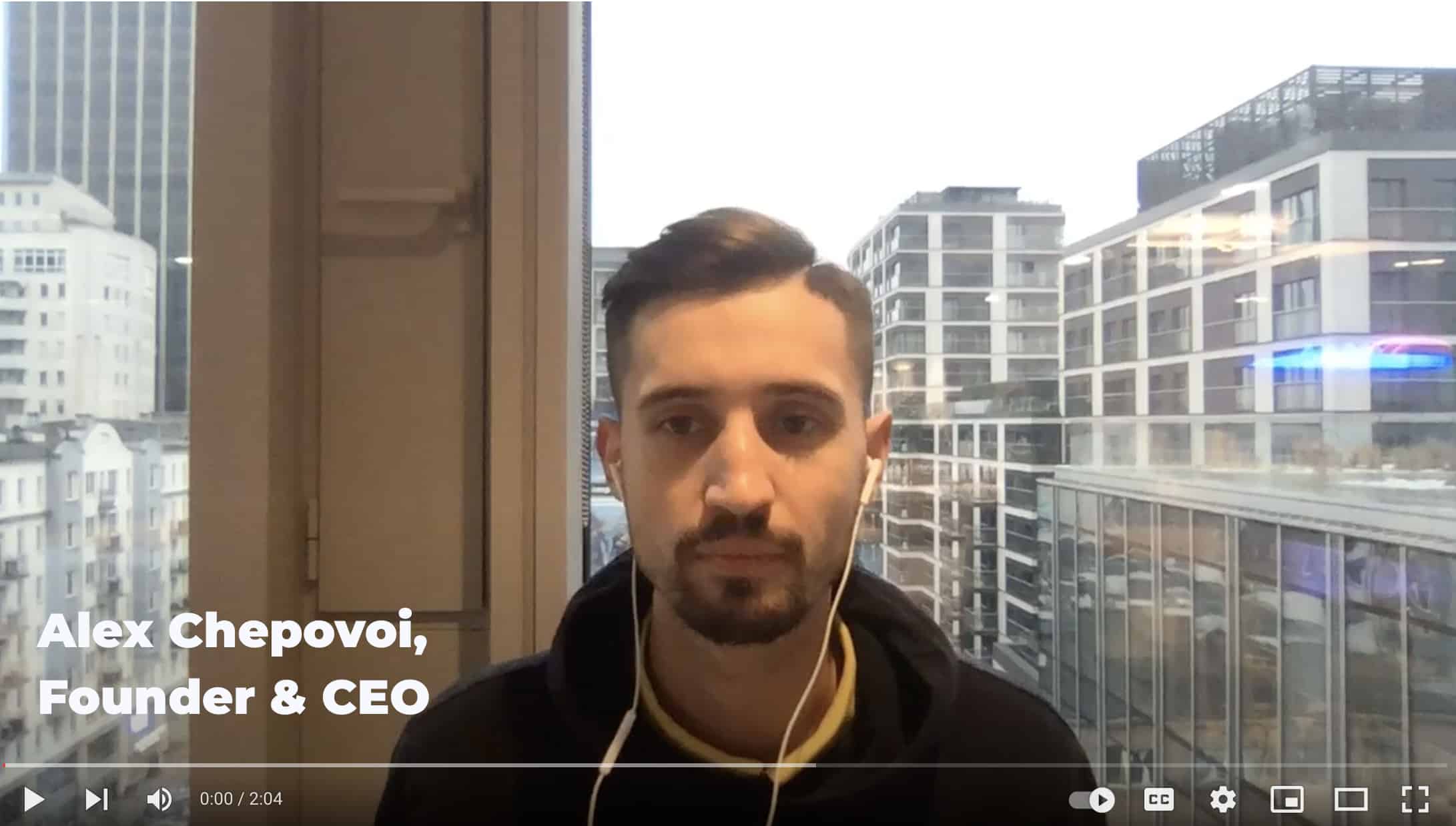Hire Java developers remotely within 3-5 days
You can hire Java developers remotely with Expert Remote. Sign up to access our talent pool. Search available developers, add them to vacancies and schedule interviews.


Hire Top 1% of Java Developers Today
10 years experience
Freelance Java Developer
10 years experience
IT professional with a solid background and 10+ years of commercial experience in test automation. Primary areas: Web services and Web UI test automation. Worked on 8 projects in game, travel, and marketing domains mostly on key and leading roles. Set up processes and managed teams of 20+ people. Programming languages: Java, Groovy, C#. Databases: Oracle, Microsoft SQL Server, PostgreSQL. Methodologies: SCRUM, KANBAN.
Show More Show Less10 years experience
Freelance Java Developer
10 years experience
Senior software engineer with 10+ years of experience in the software engineering field. Well organized and motivated with a focus on success. I set up my goals and do my best to achieve them. A good team player with a broad work background in globally distributed teams. I have strong knowledge of team management and development.
Show More Show Less13 years experience
Freelance Java Developer
13 years experience
Java Developer with 13 years experience in software engineering. Interested in server-side development, systems integration. Experience in creation, refactoring and performance improvement of web services. Tech and Team Leader experience. Knowledge of Linux operating systems.
Show More Show LessDon’t have the time to search developers yourself?
How we do it
Thousands of developers across the world sign up to our platform each month
They go through our rigorous screening process and only 1% make the cut
We add the best candidates to our talent pool where they wait for projects
You can hire from this pool of world’s best developers on a contract basis, within days
Customer reviews
Frequently Asked Questions
Are you an Agency?
Nope.
Well, some clients call us a virtual agency or an agency 2.0 🙂
1. Typical agencies take 50-70% from a developer salary. We take only 15-30%.
2. Agencies have 10-20 developers on their bench (available). We’ve got 500+ devs.
3. Agencies don’t allow developer buy-out. You can hire our developer in-house after 1 year for “2-month salary” fee.
Will I have a contract with a developer or with Expert Remote?
With Expert Remote.
It’s risky to have 5 contracts with 5 remote developers from 5 different countries.
You’ll have a single B2B contract with our company. So, if smth goes wrong with IP or anything, you can always sue us :)
P.S. Our company is registered in the USA and Poland.
How does the pricing work?
Each developer has their own hourly rate with our commission already included.
We take between 15% and 30% from what you pay, which is 2-3x lower than typical agency fees.
No setup fees. You only pay after you hire a developer.
2-week paid trial. If you don’t like our developer after 2 weeks, we’ll apply a 25% discount on the hours worked.
1-week notice. You can ask for a replacement or cancel the contract within a week.
Which countries are your developers located in?
We source developers across 30+ countries.
Most popular countries: Armenia, Georgia, Poland, Serbia, Albania, Azerbaijan, Turkey, North Macedonia, Romania.
We also got developers in the USA, Canada, UK, Germany, France, Spain, Estonia, Bulgaria, Netherlands, Pakistan, India, Kenya, Nigeria, etc.
What are your average rates?
Rates start from $20/h. The median average is $35-40/h.
There’s always top 10% percentile candidates who are overpriced, and bottom 10% percentile underpriced ;) But most fall into the market rate category.
The beauty of global sourcing is tapping into unknown regions. Have you heard of North Macedonia? You can find senior developers for $25/h (our fee included)!
How do you ensure developer quality?
We source developers with marketing, which is 20-30x more effective than Linkedin. This creates us a huge flood of candidates.
Then we take this top of the funnel and feed it into our proprietary vetting process. Only top 1% of candidates make it through.
Part of the process is automated, which allows us to do it at scale. For instance, our recruiters have their calendars fully booked and able to conduct 200-250 soft-skill interviews a month.
What tech stacks do you have?
We have developers across all major stacks.
Back-end: Node.js, PHP, Python, JAVA, .NET, Ruby, GoLang etc.
Front-end: React, Angular, Vue.js, etc.
Mobile: Swift, Kotlin, React native, Flutter, etc.
AI/ML/Data Science is a big stream for us: machine learning, deep learning, NLP, computer vision, etc. Technologies: TensorFlow, PyTorch, Terraform, Pandas, AzureML, OpenCV, etc.
Can I hire the whole team?
Yes!
Apart from developers we’ve got UI/UX designers, QAs, Product Managers, etc.
Based on your requirements we can assemble the whole engineering team.

12 min read
Java Developers for Hire
Java is one of the most popular programming languages. It is used by 33.27% of developers. According to The PYPL Popularity of Programming Language Index, it is the second most popular technology with a share of 17.31%. Java is primarily used for enterprise solutions — however, many successful startups implemented its solutions in their products. Doubting whether you should hire a Java developer? Let us go through some important factors that’ll help you make a decision.
4 Reasons Why Java Is Still so Popular Among Developers
10,214 companies are reported to be using Java in their tech stacks, including Uber, Airbnb, and Google and it’s not surprising. Java has been around for almost two and a half decades now.
It is loved by both web app developers and those who program for Android. Programming in Java is user-friendly and flexible which makes it one of the most used programming languages for enterprises — Java is a go-to language for enterprises — and startups.
Under coding flexibility we mean that an application built in its development system can run stably on any operating system, regardless of the OS it was originally developed on. That feature — Write Once, Run Everywhere — is enabled by Java Virtual Machine that acts as a level of abstraction between the Java source code and the hardware and “translates” it into whatever commands hardware can understand.
Other reasons it has shaken off competition are mentioned below.
1. IDEs Make Software Development Easier
Integrated Development Environment (IDE) are tools that help Java developers run, edit, and compile code. It is designed to help the developer create software applications using a combined environment with all the necessary tools at hand. The most popular ones are:
- IntelliJ IDEA,
- Eclipse,
- NetBeans.
In general, an IDE is based on a graphical user interface (GUI). It comes with an editor, and built-in tools for debugging, modeling, testing, and more. Currently, all IDEs support smart code completion, smart syntax highlighting, and VCS. This, of course, lets a Java developer work a bit faster.
2. APIs Save Freelance Java Developers Hundred of Coding Hours
Java APIs are vital components of Java SDK. These are pieces of software pre-integrated and pre-designed that include classes, interfaces, and user interfaces. Java developers use various APIs — e.g., APIs for XML parsing, database connection, input/output, etc. — and introduce them into the codebase without diving deep into details of their implementation and internal construction. While experienced programmers surely know the under-the-hood logic of various APIs and how they work, such accessibility makes programming with Java extremely fast. Plus, APIs cut down the amount of code to be written quite heavily.
Other benefits of Java API include:
| Integration | It’s easy to introduce Java APIs in apps and websites, which makes data delivery fluid and dynamic. |
| Efficiency | Java APIs boost app development and deployment immensely. App’s data is always available online. |
| Automation | With the help of the Java APIs, computers download, update, and delete data without the need for programmers to oversee these processes. Weather updates or heavy computational tasks can be done independently. |
There are more than 4.5k Java APIs. Java developers are very good at using them to optimize and streamline deployment, establish stable dataflow for the app, control databases and performance, and more.
3. Multipurpose Language Boosts Development of Highly Scalable Solutions
Java is the leading programming language that is used to create many applications and software because of its “run everywhere” philosophy and virtual machine. It can be used to develop:
- Mobile applications (on Android, though Java stopped being the only technology for Android development),
- Web applications,
- Scientific applications and various software tools.
Java development is considered more scalable than C or C++ because it is designed to adapt to changing conditions. Scalability plus the somewhat “organized” nature of object-oriented programming that allows for simple maintenance (in comparison with languages that utilize a procedural approach to programming) makes Java an asset for the development of enterprise solutions.
4. Multithreading Helps Achieve Better App Performance
A thread is the smallest part of processing in programming. To make the most efficient use of CPU time, Java supports multithreading — allows threads to run at the same time.
Threads use the same memory area, so you can quickly switch between them. Threads are independent of each other: one thread does not affect the way other threads run. Multithreading makes it easy to optimize graphics in game development or projects with a lot of animation.
What Java Developers Build
As we already told you, Java is a multipurpose technology.
- Its virtual machine is a perfect tool for the development of Big Data software. Many well-known big data processing tools (Hadoop, Spark, Mahout) utilize Java.
- Another good fit is software development within the fintech industry. Global investment banks Goldman Sachs, Citigroup, Barclays, and Standard Chartered hire Java developers to create e-commerce systems, settlement, and transaction confirmation systems, the logic for data processing, etc. Also, Java’s security protocols do safeguard sensitive data rather well, which is vital for fintech.
- Many companies hire Java developers to create PoS systems since they have to be platform-agnostic and are usually maintained by large teams.
- Of course, Java programmers often oversee native Android development projects, even though Kotlin now is a major competitor of a language.
Let’s not forget about enterprise-scale web-based apps. This table shows that Java is the most popular server-side language among leading technology companies. Compared to other programming languages, Java has better security, adaptability, and application scalability.
Many open-source tools have been created in Java for monitoring and updating data. For example, Netflix uses Java to both develop infrastructure on Linux and encode video on Windows machines.
So if your startup requires security, adaptability, and application scalability, hiring a Java developer is your best bet. The same goes for enterprise-scale projects: Java developers have access to a large pool of tools for easy but rigorous maintenance.
Java Developer: Skills and Responsibilities
There are many technical skills required to build a Java application. These include, but are not limited to:
- Knowledge of Java: JVM, Java APIs, etc.
- Java-based web services;
- SQL, NoSQL, ORM, and other database skills;
- Knowledge of test-driven development;
- Knowledge of OOP and design patterns;
- Familiarity with J2EE;
- Familiarity with XML, Xquery;
- JSP;
- Familiarity with AWS.
Java developer skills are wide and varied. Because Java is used throughout the application development life cycle, the skills of a Java developer must be extensive. Some of the general responsibilities of a Java developer (might) include:
- Build backend for software with Java;
- Design and implement software architecture;
- Analyze, debug and test software;
- Write efficient, useful, reliable code;
- Be sure the design meets business goals and specifications;
- Prepare and release software updates;
- Stay up to date with alternative technologies and innovations;
- Find improvements in installed Java-based applications.
Those who are freelancing in Java usually have quite a wide range of qualifications.
Interviewing a Java Expert
Java programmers have to be able to code in Java, expertly use features of the language, know OOP principles, various technologies for application development, and when to use them. They can work with databases and servers (especially cloud servers), work with Git version control systems, and have stellar analysis skills. It is extremely important to know English well. Within web development, Java developers for hire often also master (before Java, really) HTML, CSS, and XML. Specific tools, libraries, and frameworks vary depending on the industry, the scale of the project, and an in-house team that “accepts” a new developer — if such a team exists.
Soft Skills of a Java Developer
Necessary qualities that a Java programmer should have:
- responsibility;
- accuracy;
- attentiveness;
- punctuality;
- problem-solving skills;
- initiative;
- be a self-directed learner.
To check soft skills you can ask Java developer the following questions:
- What do you do when you know the person you’re arguing with is using an incorrect approach? How do you guide them toward the right solution?
- Explain your system for prioritizing tasks if you have any. If you don’t, what would you imagine to be an effective system for prioritizing tasks?
- How do you process making mistakes that impact the overall health of the project/team dynamic?
You can adjust this list based on the skills you want to check. Try not to ask yes or no questions.
Hard Skills
Now, let’s talk about (basic) tech skills Java developers should have. Again, details depend on the nature of the project.
Interview Questions for a Junior Java Developer
Junior Java developer possesses all theoretical skills and knows Java on the basic level. Can write simple code on their own, but their work requires verification.
The most common questions to check their hard skills are as follows:
- What design patterns do you know? Tell us about two patterns that you used in your work.
- What are the data types in Java?
- How is an object different from primitive data types?
- What is the difference between passing parameters by reference and by value?
- What is JVM, JDK, JRE?
- Why use JVM?
Interview Questions for a Middle Java Developer
Middle Java developers are more experienced. They are proficient in various development tools. The code written by them does not need to be checked. Companies require such specialists to have experience in version control systems and various DBMS (both SQL and NoSQL, e.g., MS SQL Server or Oracle). The middle Java developer should have the skills to use special tools (Hibernate, Spring, Struts, etc.). They also need to know Java very well, know J2EE design patterns, and be able to work with AWS.
You can ask them the following interview questions:
- What are the advantages and disadvantages of OOP when compared to procedural/functional programming?
- What is the difference between aggregation and composition?
- What GoF patterns have you used in practice? Give examples.
- What is a proxy object? Give examples.
- What innovations are announced in Java 19?
Interview Questions for a Senior Java Developer
A senior Java developer is a top-notch coder, and if you don’t have tech expertise it’s best to ask for assistance when hiring them. Senior freelance Java developers must have at least five years of working experience and an extensive portfolio. In the portfolio, look for high-scale enterprise apps. They must have skills in developing multi-level applications and designing & maintaining large information systems.
Some popular questions to check their software development experience include:
- When is it better to use inheritance rather than aggregation?
- How to deploy on Kubernetes? What are its benefits?
- What is the difference between Java NIO and Java IO?
- How is Lambda different from an anonymous class?
- How does the Java Memory Model work? What’s the most complex thing about understanding it?
Java Developer Salary in 2022
In 2022 a median yearly salary of a Java developer globally is $64,572. In 2021 it was significantly lower – $51,888.
The average salary rates of the junior, middle and senior experts globally are — these are yearly rates — $40k, $60k, and $80k accordingly. Some Java developers charge on an hourly basis, while others prefer project-based pricing.
A Java developer will bring an incredibly versatile, powerful backend language to your team and your product. Expert Remote will help you find the one that fits your projects, business needs, and budget in 48 hours.








